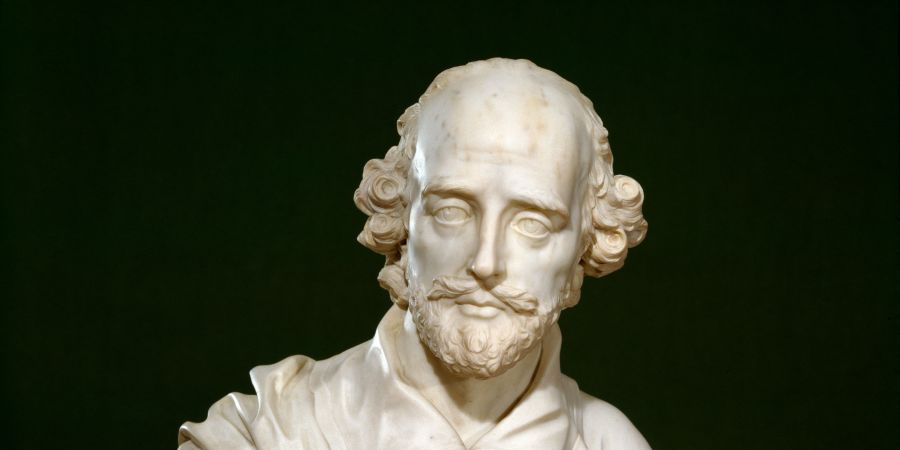

Johnson is one of the most influential critics in English literary history of the Neoclassical period. His literary endeavours include a monumental Dictionary of the English Language, a comprehensive edition of Shakespeare, and the Lives of the English Poets - a set of insightful, vividly written biographical portraits of 17th and 18th century authors. An integral dimension of Johnson's literary output was his literary criticism, which was to have a huge impact on the English men of letters in the subsequent days to come.
Samuel Johnson was the eldest son of Michael Johnson, who was born in 1709 at Lichfield, Staffordshire ( a town about 100 miles Northwest to London ). His father was a bookseller and his education consisted largely of the volumes in his father's bookshop, and by what was “ whipped into ” him by the master of grammar school in Lichfield. The Vanity of Human Wishes ( 1949 ) in verse yet another achievement and the most important and characteristic product his genius. This solemn, disquieting rumination on the futility of worldly hopes and endeavours was the first composition that Johnson issued under his own name. Johnson was working on and planning larger projects as well. In 1745, he wrote “ Miscellaneous Observations on the Tragedy Of Macbeth, ” along with a proposal for an edition of Shakespeare. In the following year, he outlined his “ plan of a Dictionary of the English Language. ”
During 1950s , Johnson wrote many periodical essays. The best of this work appeared in The Rambler which was published twice weekly from March 1750 to March 1752. Johnson died on 20th December 1784, and he was buried in Westminster Abbey.
Shakespeare was a subject of much of critical discussion during Johnson's period and his subsequent reputation in the Neoclassical period rests mainly on the assessments made by Dryden and Johnson. Dryden has made his claims for Shakespeare in his Essay on Dramatic Poesy ( 1668 ) which was to have important implications of his own ideas of drama. However, Johnson's Preface shows how Shakespeare is exonerated from his breaking of the rule of the Unities, and the views contained in it sums up what Johnson's age thought of Shakespeare.
Johnson begins his Preface by referring to the debate on the relative virtues of ancient and modern writers. He affirms that the excellence of the ancient authors is based on a “ gradual and comparative ” estimate, as tested by “ observation and experience. ” Inquiring into the reasons behind Shakespeare's enduring success and popularity, Johnson makes an important statement : “ Nothing can please many, and please long, but just representations of general nature. ” By “ general nature ”, he refers to the avoidance of particular manners and customs, and the foundation of one's work on the ‘ stability of truth ’ - truth that is permanent and universal. He claims that Shakespeare is “ the poet of nature : the poet that holds up to his readers a faithful mirror of manners and of life. ” His characters are not molded by the
Johnson also acknowledges that Shakespeare's plays “ are not in the rigorous and critical sense either tragedies or comedies, but compositions of a distinct kind; exhibiting the real state of sublunary nature, which partakes of good and evil, joy and sorrow, mingled with endless variety of proportion and in numerable modes of combination. “ He also believed that Shakespeare “ has united the powers of exciting laughter and sorrow not only in one mind but in one composition. " It is in his defence of tragicomedy that Johnson appeals to nature as a higher authority than precedent.
Johnson does consider that Shakespeare had many faults. The faults of Shakespeare, according to Johnson are as follows :
Johnson acknowledges that from Shakespeare's plays, a “ system of social duty ” is cultivated. Some other faults of Shakespeare cited by Johnson are :
Johnson argues that Shakespeare does observe unity of action : his plots are not structured by a complication and denouement “ for this is seldom the order of real events, and Shakespeare is the poet of nature. ” However, he does observe Aristotle's requirement that a plot should have a beginning, middle, and end.
Johnson broadly agrees with the tradition that Shakespeare lacked formal learning; and the greater part of his excellence being a “ product on his own genius. ”
Important concepts in Preface to Shakespeare :
Thus, we may assume that Samuel Johnson's Preface to Shakespeare is a landmark in Shakespearean criticism for one single most dominant idea that he laid the foundations of modern Shakespearean scholarship and textual criticism.






